Mhncha means “snake” in Arabic but there is no snake meat in these cookies. They are named for the shape. Typically this cookie is made in a very large size, enough to feed several dozen people. It’s very popular for weddings and other special occasions. A few months ago when I took a cookie class at the Amal Center, we made a smaller version of this popular sweet. They’re more manageable than their big “sister” and perfect for serving or gifting during Ramadan.
These are a bit time consuming to make so be sure you have a comfortable work space. You can make your own warka or buy pre-made phyllo dough. I suggest buying phyllo as this is the most difficult and time consuming step.
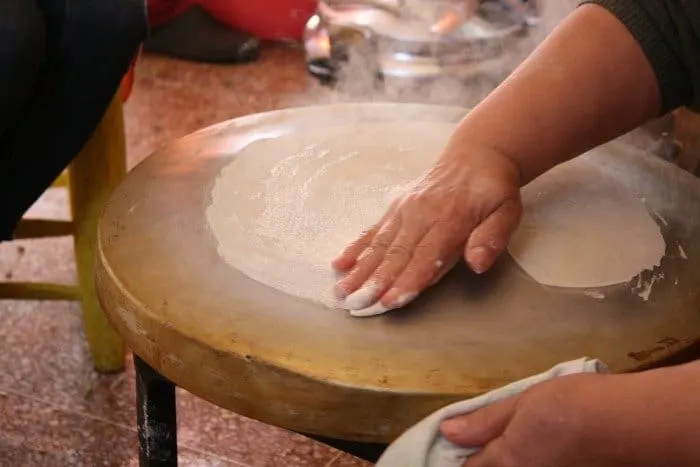
Malika, who showed us how to make Moroccan pastries is an expert warka maker, and believe me this truly is an art. A towa (slightly curved metal pan) is placed over an open flame and is heated until very hot. The warka dough is very wet. Carefully but quickly it is smoothed onto the towa to create a thin, flat sheet of dough. It cooks very quickly. As soon as the edges start to pull up, it’s removed from the heat and brushed with oil. It’s important that the warka is not cooked completely through as it needs to remain pliable to use.
Want an easier way? Check out my gluten-free version that’s cooked in a skillet and applied using a clean paintbrush.
Once the sheets are ready it’s time to start making the cookies.
Ingredients
- 1 kg almond flour
- 150g butter
- 250g powdered sugar
- 1 tsp cinnamon
- pinch of grated nutmeg
- 1/2 tsp orange blossom water
- 1 package phyllo dough
- 1 egg (eggwash)
Directions
Mix all of the ingredients together (except for the phyllo) and form into a paste. It shouldn’t crumble. If it does, add more butter so that it holds together.
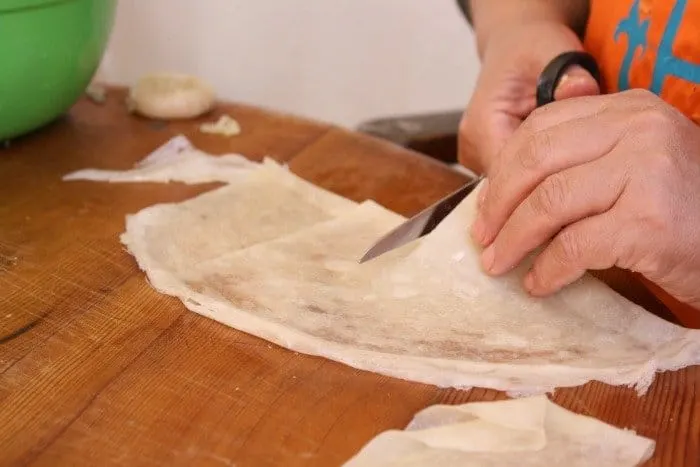
Fold a sheet of warka or phyllo in half and cut into strips about 2 inches wide. You will need to move very quickly once you start to make the cookies so don’t cut all of the dough at one time. Cut the sheets as you go so that it doesn’t dry out.
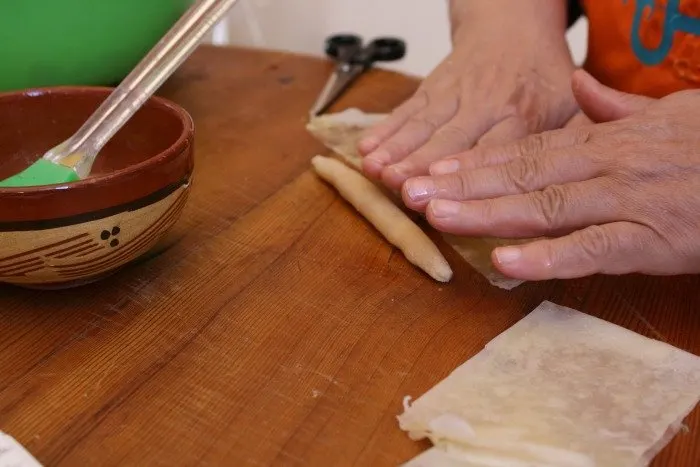
For the cookies, one strip of dough should be enough. Roll a tube of the filling paste so that it is slightly smaller than the warka. You need to have space on the ends of the cookie so that you can seal it properly. Begin by placing the tube of filling at the bottom of the rectangle of warka and tightly (but carefully) wrapping the filling into the warka. Don’t pull it so tight that the warka breaks. If it does, discard the warka and start over.
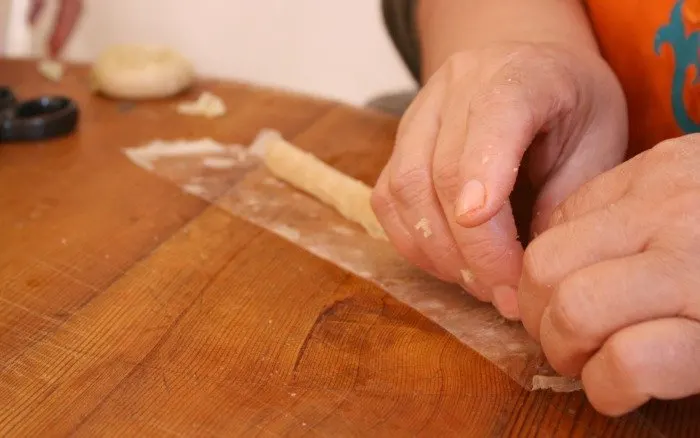
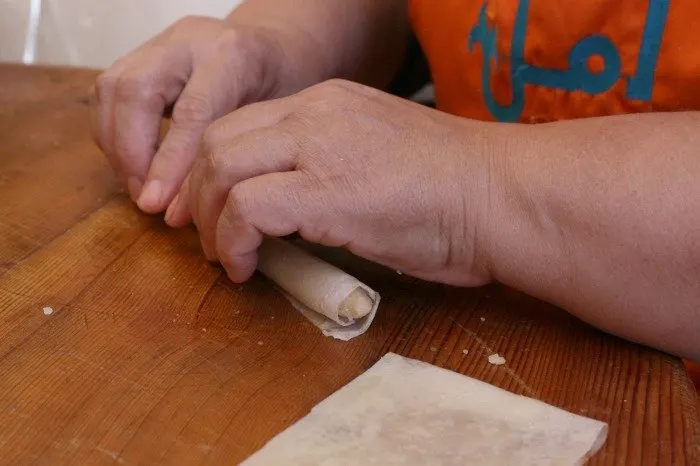
You can see from this picture that the cookies are wrapped securely but there’s still a little wiggle room. Once this is done it’s time to make the shape. Start with the end that has the least amount of warka hanging over the edge and fold in. Keep winding to form a coil.
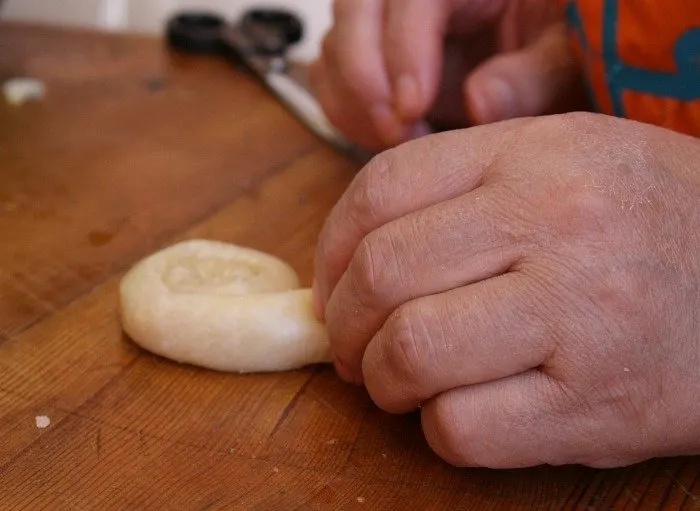
This step also must be done tightly but carefully. The exterior shouldn’t crack. If it does, start over. When you reach the end, take the tail of warka and brush onto the cookie with an egg wash to seal. Set onto a baking pan and finish the rest of the cookies.
Preheat oven to 400F. Brush all of the cookies with an eggwash and bake until just golden brown on top, approximately 8-10 minutes. Mhncha can be dusted with powdered sugar and crushed almonds or glazed with a thin layer of honey.
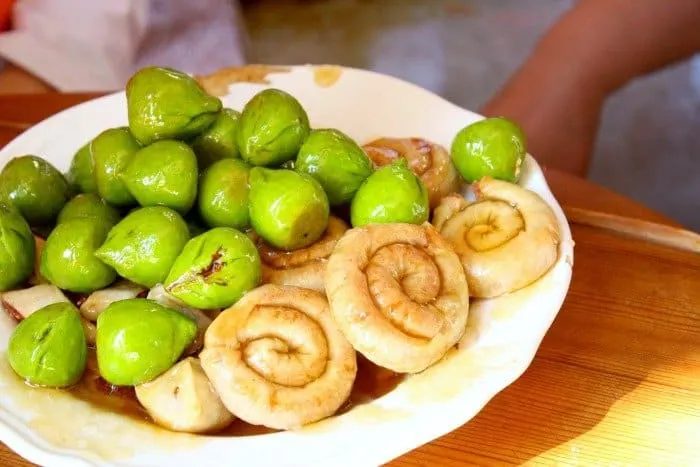
They are delicious warm out of the oven but also good at room temperature. Bss’ha!
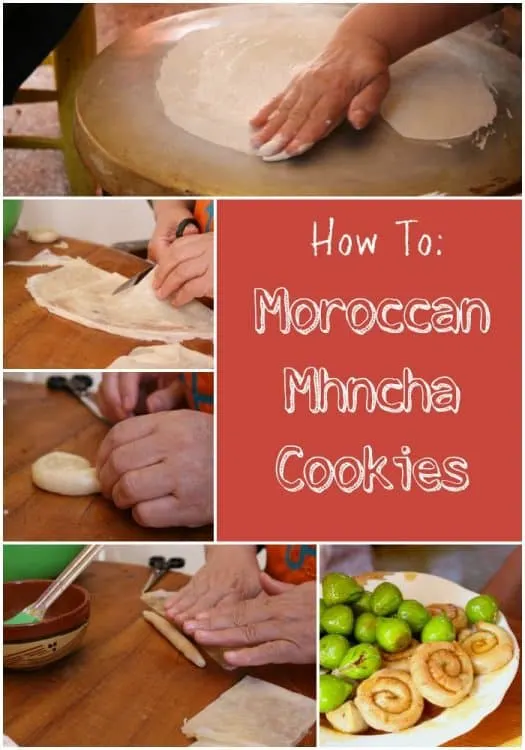
PIN FOR LATER!
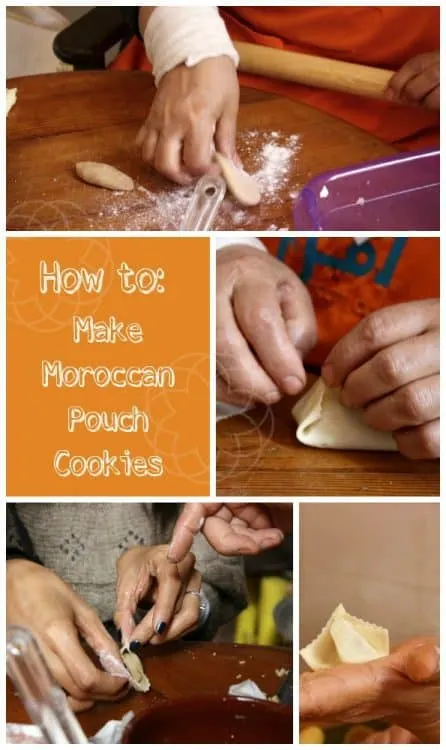
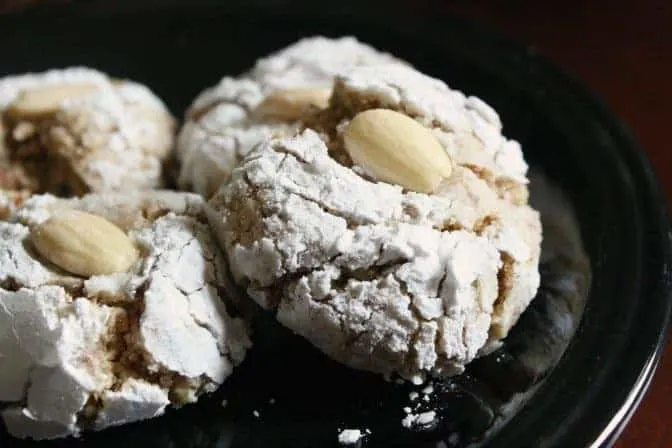
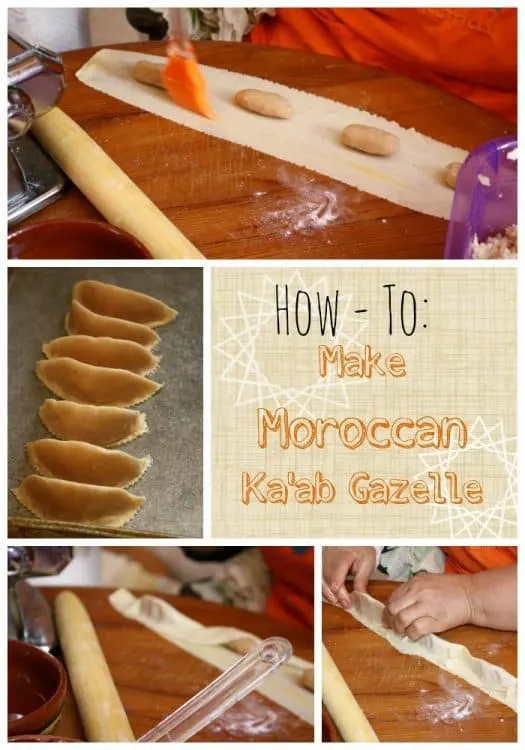
Helga
Wednesday 22nd of June 2016
Yesterday I saw you in Chez Benali on Dutch television. Today I looked immediately for your site on internet and I love it!
I am married to a Moroccan man too. We have 2 daughters, Yasmin (20) and Dounia (17). Our homebase in Morocco is Fez. This year I will travel to Morocco for the 16th time. Morocco feels to me as home. We surely will visit Marrakech as well, because Dounia loves your city. I like Marrakech too, but I can do a holiday without it. Maybe we can meet when we are in Marrakech.
I have a question. Do you have a receipt of the figcookies, which are on the photo with the mhanchacookies? I once ate them on a wedding, wrote the receipt on a little piece of paper, but lost it again.
Amanda Mouttaki
Thursday 7th of July 2016
I'll try to find it!
Paolo Scalambro
Friday 3rd of July 2015
Ok thanks. Do you think that also the audio files with the book "A Basic Course in Moroccan Arabic with MP3 Files " are only for beginners? Another way should be to find somethinginteresting on YouTube (e.g. DeuxEmme) Paolo
Amanda Mouttaki
Tuesday 7th of July 2015
I think any audio files will be great because the biggest challenge with learning Darija is getting accustomed to the way things sound.
Paolo Scalambro
Tuesday 23rd of June 2015
Excuse but I didn’t find your email; my question is about darija and not cooking! I live in Torino where there is the biggest morocco community in Italy: about 25-28.000 people. So I’m studying darija about from two years (but in the past I studied “modern Arabic”): I have completed the book of Peace Corps that in my opinion is a very good text because there is also an audio recording with the texts of the lessons. But now I need other listening material and not for absolute beginners but “intermediate level”. What do you suggest me about listening? Can I find in Internet (or also a book) some audio recording in darija? I found a lot of useful info on your site! Paolo
Amanda Mouttaki
Tuesday 23rd of June 2015
I think you're stuck where lots of us are. Sadly I don't have any good resources to get to the next level. The best thing to do would seek out a personal tutor - I know there are some sites online that do virtual tutoring over Skype.